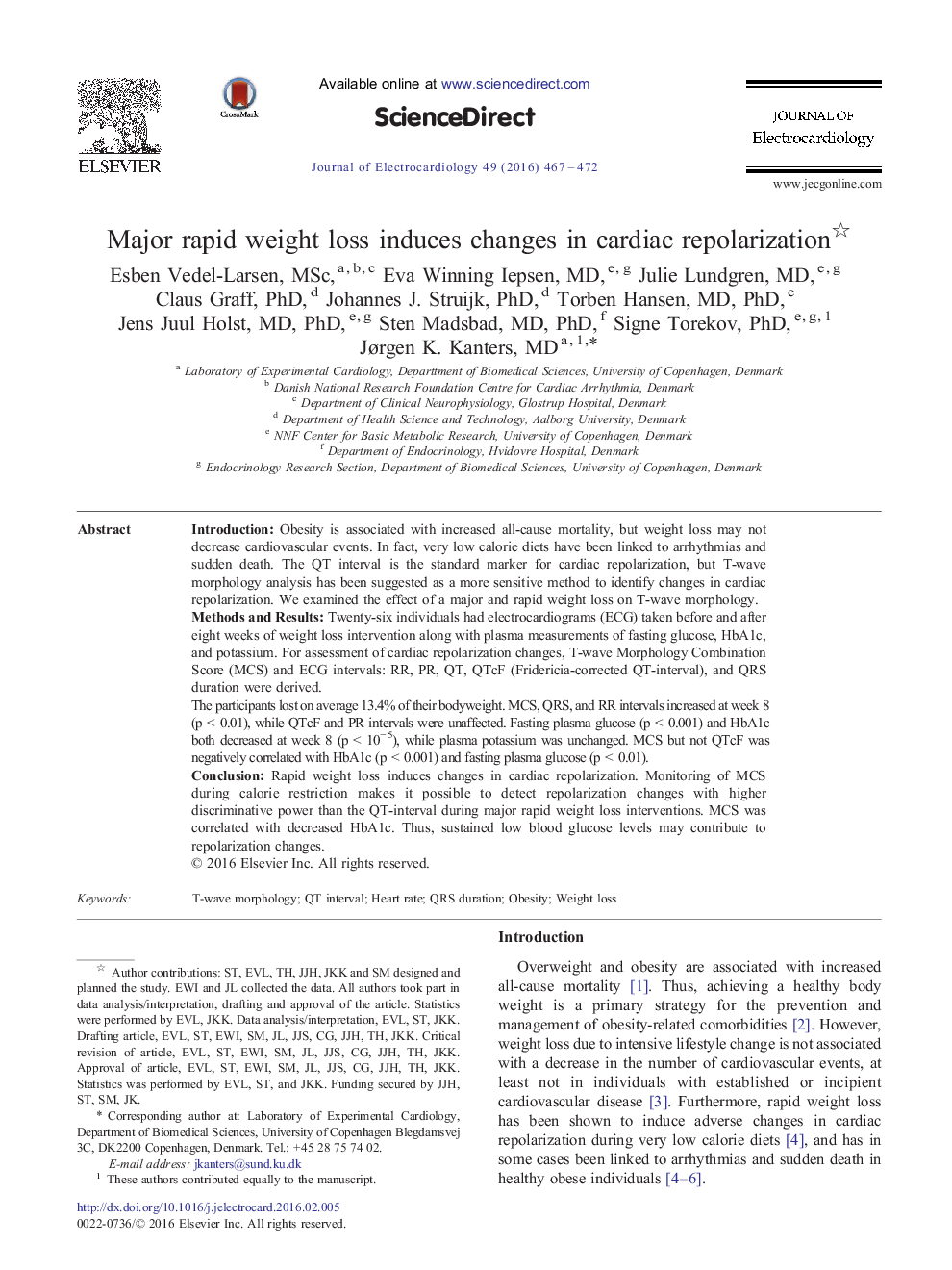| کد مقاله | کد نشریه | سال انتشار | مقاله انگلیسی | نسخه تمام متن |
|---|---|---|---|---|
| 5986231 | 1178841 | 2016 | 6 صفحه PDF | دانلود رایگان |
- Weight loss may be associated with repolarization abnormalities
- T-wave Morphology Combination score is a more sensitive marker than QTc.
- Sustained low glycemic levels may induce repolarization changes
IntroductionObesity is associated with increased all-cause mortality, but weight loss may not decrease cardiovascular events. In fact, very low calorie diets have been linked to arrhythmias and sudden death. The QT interval is the standard marker for cardiac repolarization, but T-wave morphology analysis has been suggested as a more sensitive method to identify changes in cardiac repolarization. We examined the effect of a major and rapid weight loss on T-wave morphology.Methods and ResultsTwenty-six individuals had electrocardiograms (ECG) taken before and after eight weeks of weight loss intervention along with plasma measurements of fasting glucose, HbA1c, and potassium. For assessment of cardiac repolarization changes, T-wave Morphology Combination Score (MCS) and ECG intervals: RR, PR, QT, QTcF (Fridericia-corrected QT-interval), and QRS duration were derived.The participants lost on average 13.4% of their bodyweight. MCS, QRS, and RR intervals increased at week 8 (p < 0.01), while QTcF and PR intervals were unaffected. Fasting plasma glucose (p < 0.001) and HbA1c both decreased at week 8 (p < 10â 5), while plasma potassium was unchanged. MCS but not QTcF was negatively correlated with HbA1c (p < 0.001) and fasting plasma glucose (p < 0.01).ConclusionRapid weight loss induces changes in cardiac repolarization. Monitoring of MCS during calorie restriction makes it possible to detect repolarization changes with higher discriminative power than the QT-interval during major rapid weight loss interventions. MCS was correlated with decreased HbA1c. Thus, sustained low blood glucose levels may contribute to repolarization changes.
Journal: Journal of Electrocardiology - Volume 49, Issue 3, MayâJune 2016, Pages 467-472
